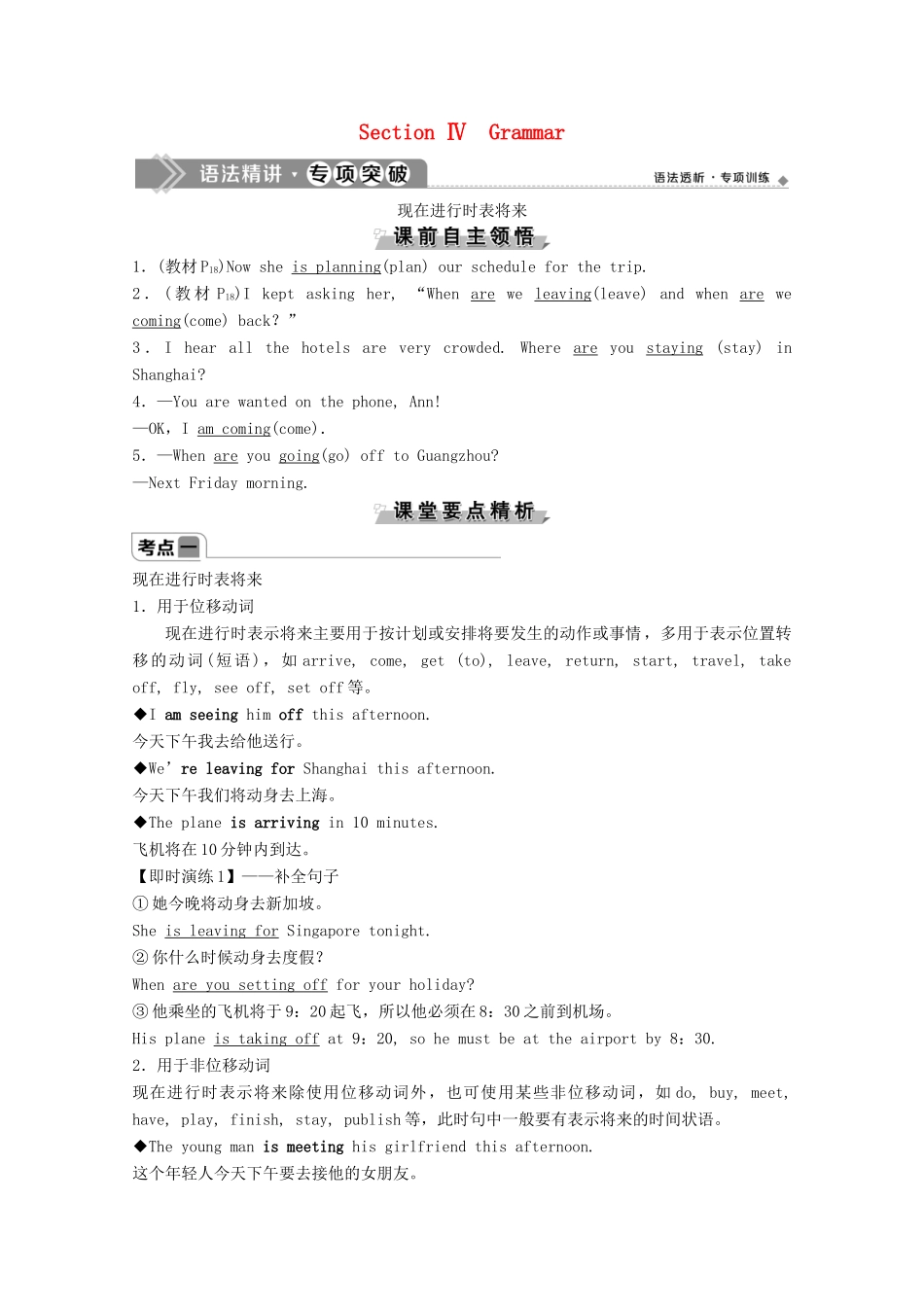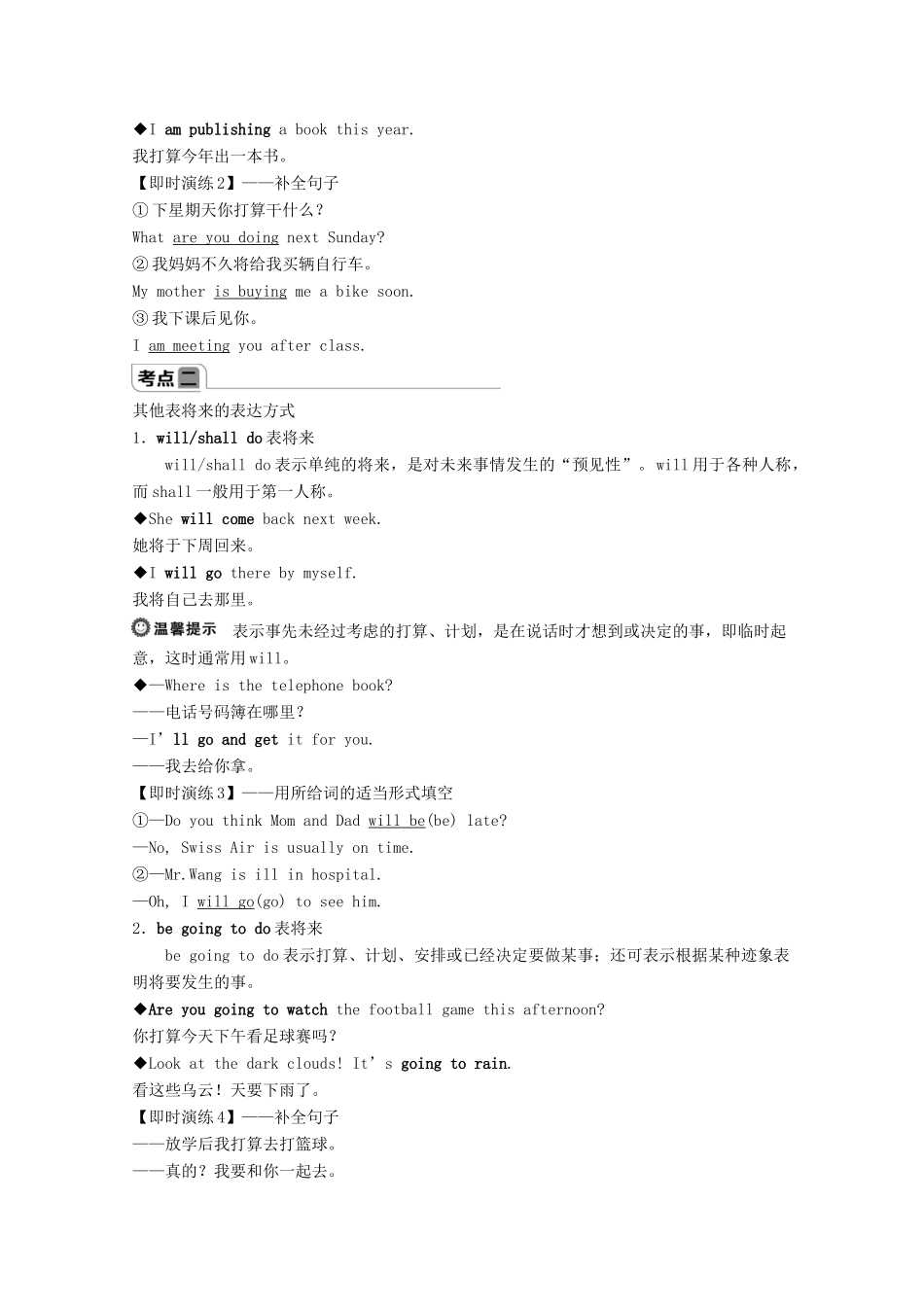Section Ⅳ Grammar现在进行时表将来1.(教材 P18)Now she is planning(plan) our schedule for the trip.2 . ( 教 材 P18)I kept asking her, “When are we leaving(leave) and when are we coming(come) back?”3 . I hear all the hotels are very crowded. Where are you staying (stay) in Shanghai?4.—You are wanted on the phone, Ann!—OK,I am coming(come).5.—When are you going(go) off to Guangzhou?—Next Friday morning.现在进行时表将来1.用于位移动词现在进行时表示将来主要用于按计划或安排将要发生的动作或事情,多用于表示位置转移的动词(短语),如 arrive, come, get (to), leave, return, start, travel, take off, fly, see off, set off 等。◆I am seeing him off this afternoon.今天下午我去给他送行。◆We’re leaving for Shanghai this afternoon.今天下午我们将动身去上海。 ◆The plane is arriving in 10 minutes. 飞机将在 10 分钟内到达。【即时演练 1】——补全句子① 她今晚将动身去新加坡。She is leaving for Singapore tonight.② 你什么时候动身去度假?When are you setting off for your holiday?③ 他乘坐的飞机将于 9:20 起飞,所以他必须在 8:30 之前到机场。His plane is taking off at 9:20, so he must be at the airport by 8:30.2.用于非位移动词现在进行时表示将来除使用位移动词外,也可使用某些非位移动词,如 do, buy, meet, have, play, finish, stay, publish 等,此时句中一般要有表示将来的时间状语。◆The young man is meeting his girlfriend this afternoon.这个年轻人今天下午要去接他的女朋友。◆I am publishing a book this year.我打算今年出一本书。【即时演练 2】——补全句子① 下星期天你打算干什么?What are you doing next Sunday?② 我妈妈不久将给我买辆自行车。My mother is buying me a bike soon.③ 我下课后见你。I am meeting you after class.其他表将来的表达方式1.will/shall do 表将来will/shall do 表示单纯的将来,是对未来事情发生的“预见性”。will 用于各种人称,而 shall 一般用于第一人称。◆She will come back next week....


